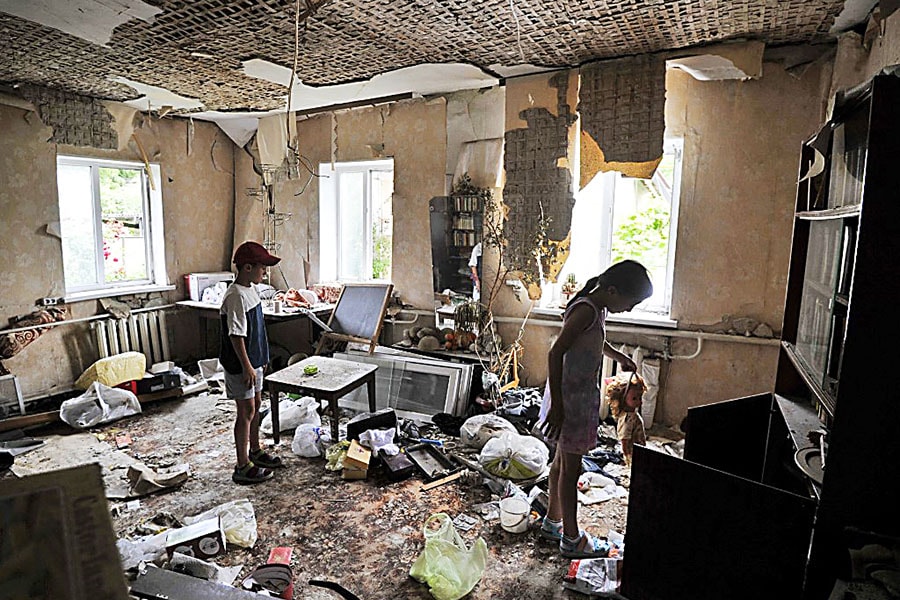
From the debris of shattered Ukraine rises the healing song of children
Borodianka, a town of 14,000 before the February 24 invasion, is the most battered of the towns encircling Kyiv, bearing the profound scars of Moscow's failed attempt to take the Ukrainian capital
 Children inspect a room damaged by the shelling in the town of Borodianka, near Kyiv on July 7, 2022. Image: Sergei Chuzavkov / AFP
Children inspect a room damaged by the shelling in the town of Borodianka, near Kyiv on July 7, 2022. Image: Sergei Chuzavkov / AFP
Borodianka, Ukraine: Music teacher Oksana Shevchenko sits near a small pile of twisted metal and cement, the only break in a flat expanse of desolate, empty terrain.
It is all that is left of the music school where she worked for 30 years, pulverised when the Russian army took over her home town of Borodianka, an hour's drive northwest of Ukraine's capital, Kyiv.
"Look, just burned down wasteland," the 53-year-old says, visibly angry.
"Soil and nothing else in this place of culture, where children used to study... This is the extermination of culture and Ukrainians by Russian occupiers."







